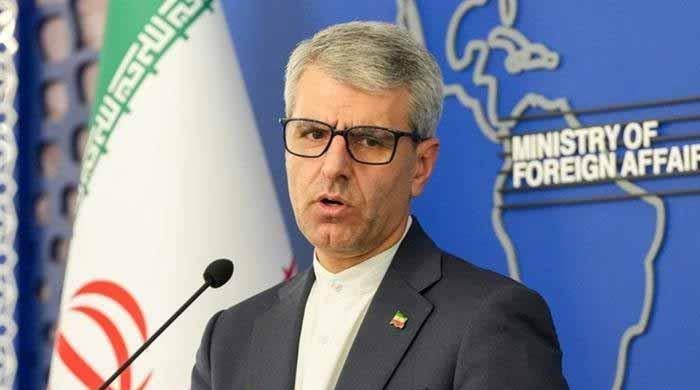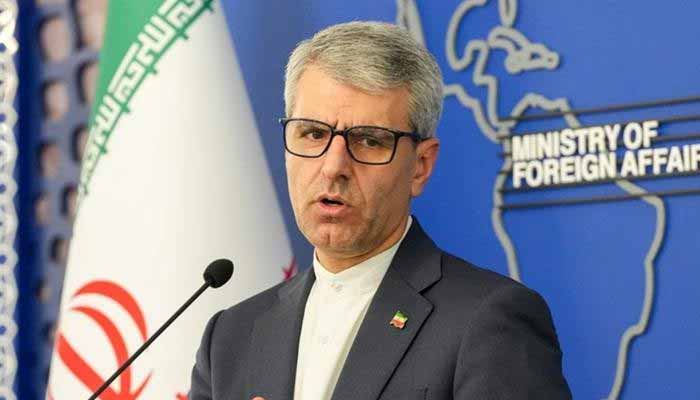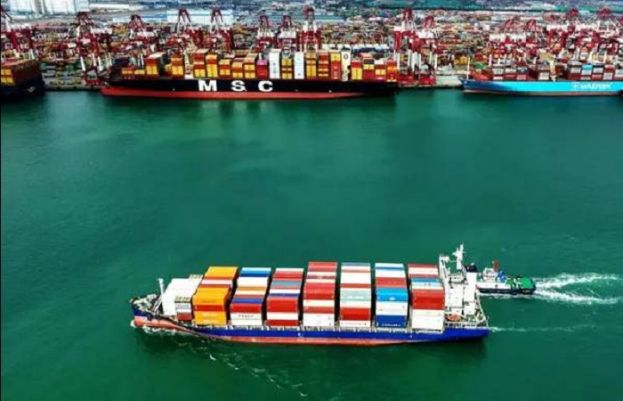Politics
US Senators Strike Deal to End Historic Government Shutdown


US senators reached a bipartisan deal on Sunday to resume federal funding, ending a government shutdown that has stretched to a record 40 days and brought many federal operations to a halt.
The agreement between Democratic and Republican senators a first step toward halting the shutdown comes amid warnings that US air travel could “slow to a trickle” as thousands more flights faced cancellations or delays over the weekend.
According to outlets including CNN and Fox News, lawmakers reached a stopgap deal to fund the government through January, following disputes over health care subsidies, food benefits, and President Donald Trump’s firings of federal employees.
Commenting on the development after returning to the White House from his Mar-a-Lago estate in Florida, Trump said, “It looks like we’re getting very close to the shutdown ending.”
The Republican-led Senate quickly held a procedural vote on Sunday to move the measure forward, which appeared to have sufficient support from Democrats to advance.
Once the Senate approves the bill, it must pass the House of Representatives, also under Republican control, before heading to Trump’s desk for signature — a process that could take several days.
Earlier on Sunday, Transportation Secretary Sean Duffy warned that continued shutdown could further worsen flight disruptions, particularly as Americans prepare for the Thanksgiving holiday later this month.
By Sunday evening, more than 2,700 US flights had been canceled, with nearly 10,000 delayed, according to FlightAware data.
Airports in the New York City area, Chicago’s O’Hare, and Atlanta’s Hartsfield-Jackson were particularly hard-hit.
Newark Liberty International Airport, a major northeastern hub, was among the worst affected.
At New York’s LaGuardia Airport, more than half of all outbound flights were delayed.
Splits over health care
Without a deal, Duffy warned that many Americans planning to travel for the November 27 Thanksgiving holiday would “not going to be able to get on an airplane, because there are not going to be that many flights that fly if this thing doesn’t open back up.”
It could take days for flight schedules to recover after the shutdown is finally ended, and federal funding — including salaries — starts to flow again.
Sunday marked the third day of flight reductions at airports nationwide, after the Trump administration ordered reductions to ease strain on air traffic controllers working without pay.
According to lawmakers, the bill would restore funding for the SNAP food stamp program which helps more than 42 million lower-income Americans pay for groceries.
It would also reverse Trump’s firings of thousands of federal workers over the past month, and assure a vote on extending health care subsidies that are set to expire at the end of this year.
“This deal guarantees a vote to extend Affordable Care Act premium tax credits, which Republicans weren’t willing to do,” Senate Democrat Tim Kaine said in a statement.
The bill — a so-called continuing resolution (CR) to keep government funded at pre-shutdown levels — “will protect federal workers from baseless firings, reinstate those who have been wrongfully terminated during the shutdown, and ensure federal workers receive back pay” as required by law, he added.
But many Senate Democrats are opposed to the deal, including the chamber’s top Democrat Chuck Schumer, who expressed anger that it offers a vote for extending the health care subsidies instead of extending them directly.
“I can not in good faith support this CR that fails to address the health care crisis,” Schumer told the chamber, adding: “This fight will and must continue.”
Politics
Iran says US claim on plot to kill Israeli ambassador in Mexico ‘absurd’


- Iran’s foreign ministry spox says entire matter was fabricated.
- Israel thanks Mexico for foiling Iran-linked terrorist network.
- Mexico says it received no information on alleged terrorist plot.
TEHRAN: Iran on Monday dismissed accusations by the United States that Tehran had attempted to kill the Israeli ambassador in Mexico, describing the claim as “absurd”.
“We found this claim very ridiculous and absurd,” said Foreign Ministry spokesman Esmaeil Baqaei during a weekly press briefing, adding that it was part of an attempt to destroy Iran´s friendly relations with other countries.
Following Washington’s accusation on Friday of the assassination attempt, Israel’s foreign ministry thanked Mexican authorities “for thwarting a terrorist network directed by Iran”.
But Mexico’s foreign ministry later said it had “received no information” on the alleged plot, and Iran’s embassy in Mexico called it “a great big lie”.
A US official alleged that Iran’s Islamic Revolutionary Guard Corps’ elite Quds Force initiated the plot in late 2024 and that it was disrupted earlier this year.
The alleged plot involved recruiting operatives through Iran’s embassy in Venezuela, whose leftist president, Nicolas Maduro, maintains a tactical alliance with Tehran.
“The entire matter was fabricated,” Baqaei said on Monday.
In mid-June, Israel launched an unprecedented bombing campaign against Iran, triggering a 12-day war during which the US briefly joined with strikes on Iranian nuclear sites.
A ceasefire between Iran and Israel has been in place since June 24.
Politics
China eases tensions by pausing special port fees on US vessels


China said Monday it would suspend for one year “special port fees” on US vessels “simultaneously” with Washington’s pause on levies targeting Chinese ships, as a fragile trade truce between the superpowers continues to take shape.
The United States and China have been involved in a volatile trade and tariff war for months, but agreed to walk back some punitive measures after presidents Xi Jinping and Donald Trump met last month in South Korea.
At one point, duties on both sides had reached prohibitive triple-digit levels, hampering trade between the world’s two largest economies and snarling global supply chains.
The suspension of the port fees, which applied to ships operated by or built in the United States that visited Chinese ports, began at 13:01 on Monday, a transport ministry statement said.
The US shipbuilding industry was dominant after the Second World War but has gradually declined and now accounts for just 0.1 percent of global output.
The sector is now dominated by Asia, with China building nearly half of all ships launched, ahead of South Korea and Japan.
Separately, Beijing said it would suspend sanctions against US subsidiaries of Hanwha Ocean, one of South Korea’s largest shipbuilders.
The year-long suspension of measures against Hanwha, effective from November 10, was linked to the US halting port fees it had levied on Chinese-built and operated ships, China’s commerce ministry said in an online statement.
“In light of this… China has decided to suspend the relevant measures” for one year, the statement said.
China had imposed sanctions on five US subsidiaries of Hanwha in October, accusing them of supporting a US government “Section 301” investigation that found Beijing’s dominance of the shipbuilding industry unreasonable.
Organizations and individuals in China had been banned from cooperating with Hanwha Shipping LLC, Hanwha Philly Shipyard Inc., Hanwha Ocean USA International LLC, Hanwha Shipping Holdings LLC and HS USA Holdings Corp.
A planned probe into whether the Section 301 investigation impacted the “security and development interests” of China’s shipbuilding industry and supply chain had also been shelved for one year, according to the transport ministry.
The suspensions are the latest sign of a thaw in economic ties since the Xi-Trump meeting.
On Wednesday, China said it would extend the suspension of additional tariffs on US goods for one year, keeping them at 10 percent, and suspend some tariffs on soybeans and other US agricultural products.
China also suspended an export ban on gallium, germanium and antimony, metals crucial for modern technology, on Sunday.
Also following talks, Beijing agreed to halt for one-year restrictions on the export of rare earths technology.
Washington in turn agreed to suspend for one-year export restrictions on affiliates of blacklisted foreign companies in which they had at least a 50 percent stake, the Chinese commerce ministry said Wednesday.
Politics
UAE signals it may not join international Gaza stabilization efforts


The United Arab Emirates is not planning to join the international stabilization force for Gaza because it lacks a clear framework, a senior official said on Monday.
“The UAE does not yet see a clear framework for the stability force, and under such circumstances will probably not participate in such a force,” Emirati presidential advisor Anwar Gargash told the Abu Dhabi Strategic Debate forum.
The US-coordinated international force has been seen as likely to include troops from Egypt, Qatar and Turkey, as well as the UAE.
Last week, US President Donald Trump said he expected the force to be in Gaza “very soon”, as a fragile ceasefire holds following two years of war. The oil-rich UAE is one of the few Arab nations with official ties to Israel after signing the Abraham Accords during Trump’s first term in 2020.
-

 Business1 week ago
Business1 week agoAndy Jassy Reveals Real Reason Behind Amazon 14,000 Job Cuts — And It’s Not AI
-

 Sports1 week ago
Sports1 week agoTudor’s Juve exit means McKennie must prove himself all over again
-

 Politics1 week ago
Politics1 week agoPolitical violence kills almost 300 since Hasina’s fall: rights group
-

 Politics1 week ago
Politics1 week agoIran vows to rebuild nuclear sites ‘stronger than before’
-

 Entertainment1 week ago
Entertainment1 week agoPresident Zardari to attend Second World Summit for Social Development in Doha
-

 Tech1 week ago
Tech1 week agoStep Away From Screens With the Best Family Board Games
-

 Sports1 week ago
Sports1 week agoPakistani runners make their mark at Istanbul Marathon
-

 Entertainment1 week ago
Entertainment1 week agoGeorge Clooney on “Jay Kelly,” fame and family





